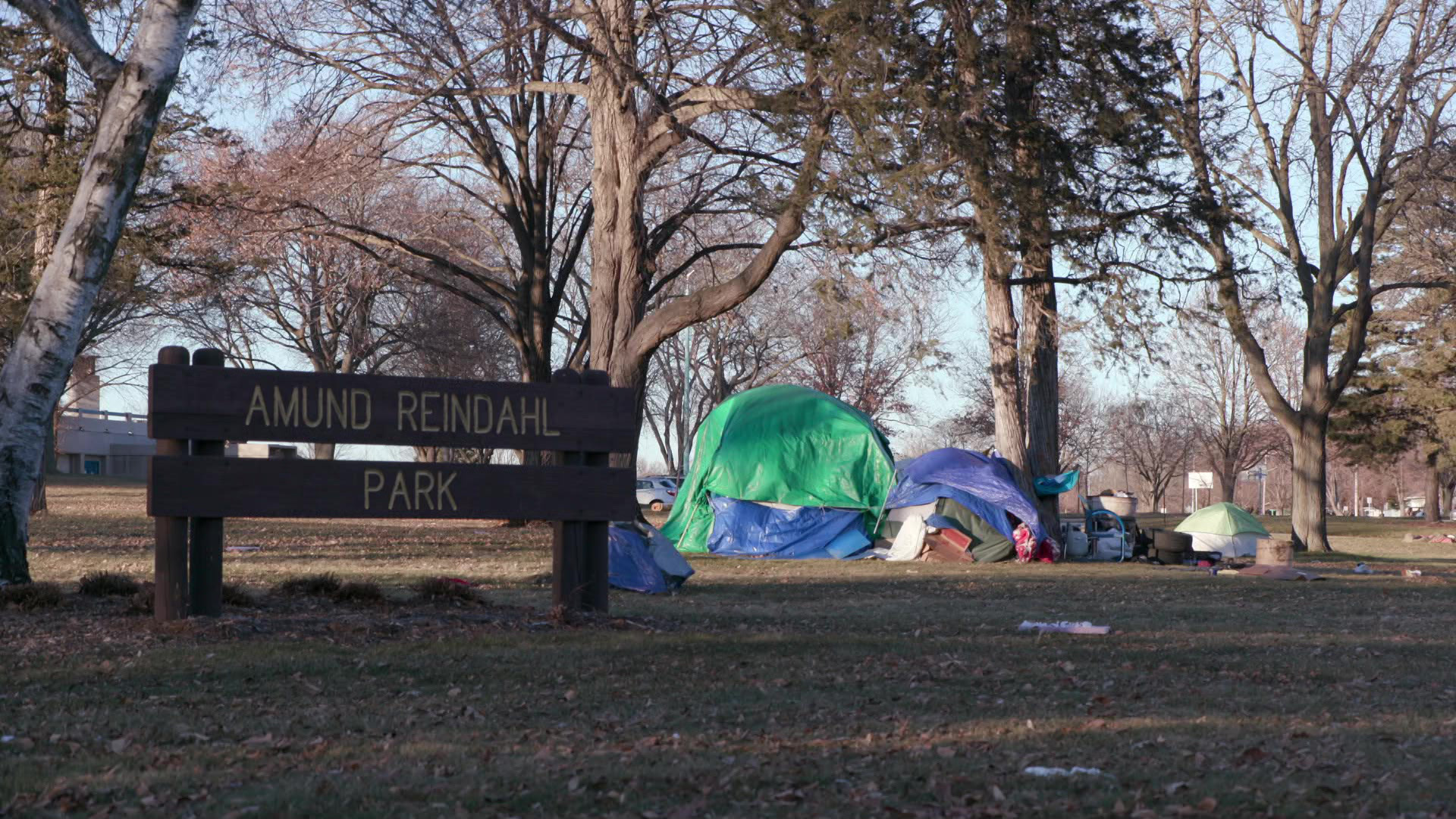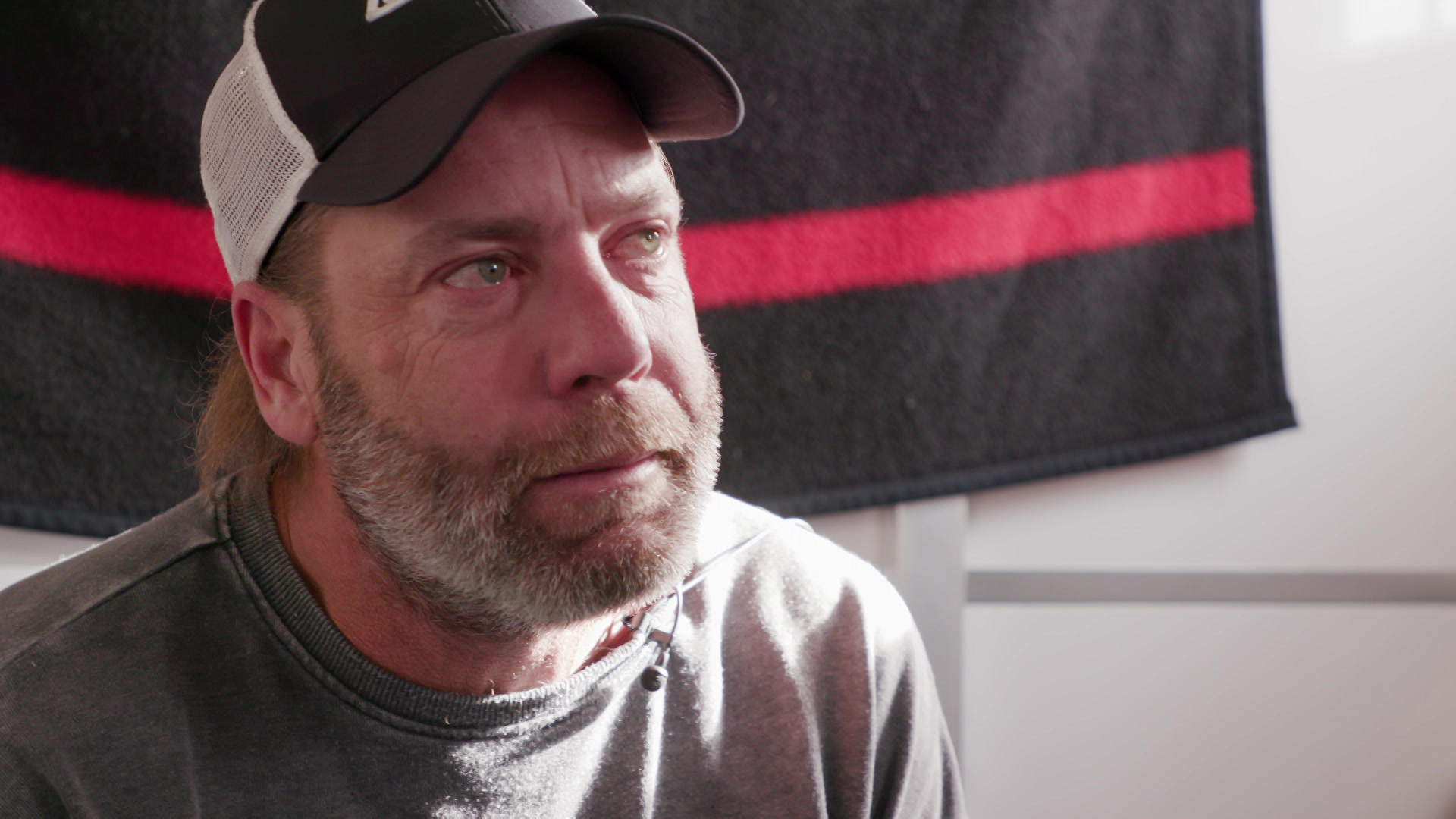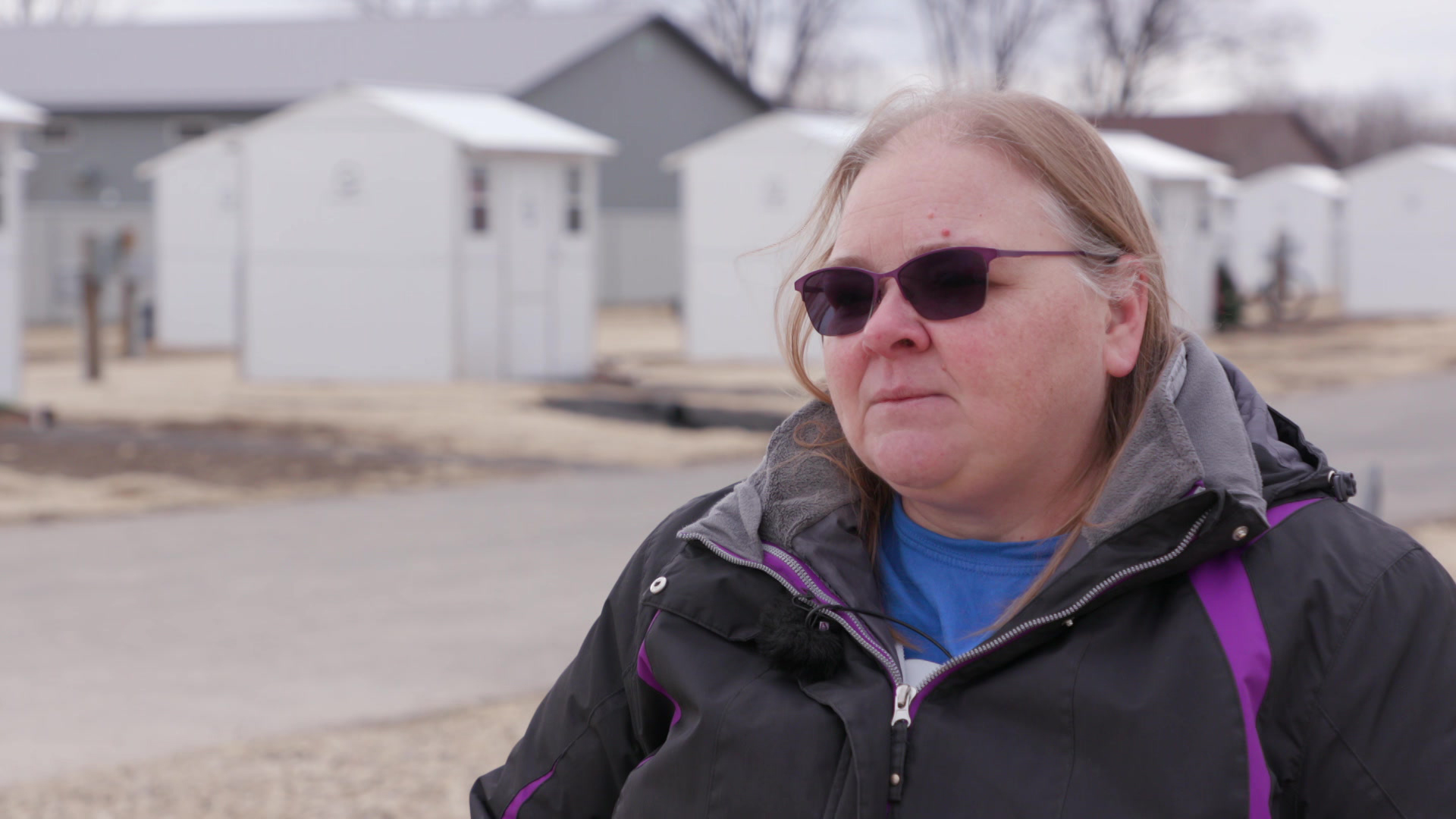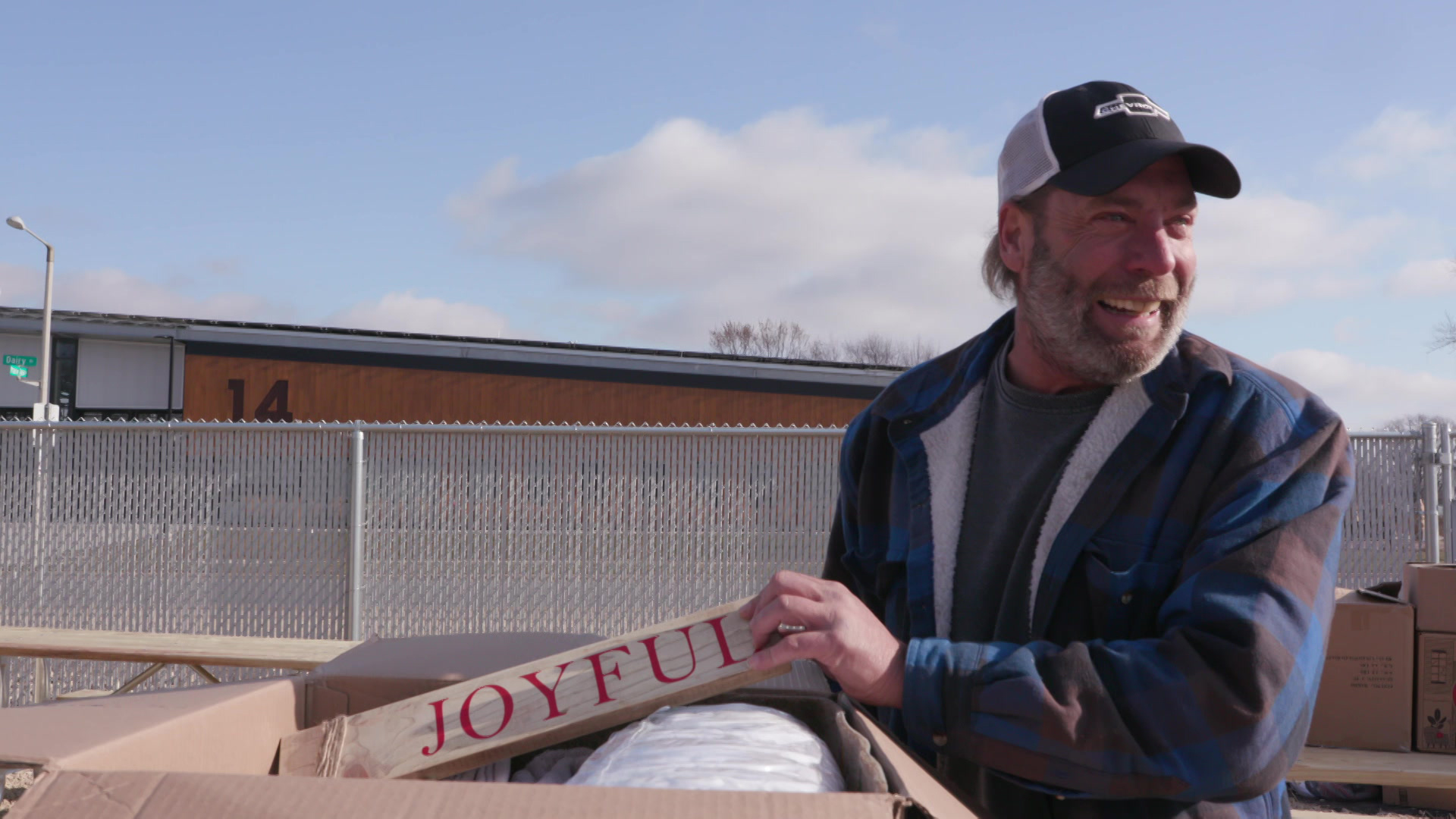Madison shifts homelessness strategy with the season
By Frederica Freyberg | Here & Now
December 10, 2021 • South Central Region
Unhoused people in Madison living in a park on the city's east side are being moved to a new private shelter and into hotel rooms as colder winter weather arrives.
As you turn up your thermostat or throw logs on the fire, imagine living and sleeping outside. Hundreds of people experiencing homelessness in Wisconsin are doing just that. In Madison alone, their numbers swelled in 2020 to around 600 by some counts, but about 30 people are newly sheltered from the cold in a new way. They are residing in an encampment of small, but private dwellings the city erected for people who until just recently were living in tents.
“You know you just feel human again,” said Jay Gonstead, who welcomed Here & Now into his new place.
“This is my bed which is … it’s comfortable,” he said.
Gonstead has been living in the 8-foot by 8-foot shelter for less than a month.
“Here’s my keys. When they handed them to me the day I got here, I think that’s what put me over the edge a little bit,” he added. “Because I knew I was going to be safe.”
Before being given the keys to his fresh start, Gonstead had lived in a tent in Reindahl Park on Madison’s east side alongside nearly 100 others.

Scores of unhoused people camped at Amund Reindahl Park on Madison’s east side through most of 2021, until the city moved residents to a nearby hotel and a new shelter project. (Credit: PBS Wisconsin)
“It was more survival mode,” he said. “You had to focus on surviving more than living and you know getting back on track.”
The city helped move 35 people out of the tents to a hotel near the park. Thirty more moved to a location on Madison’s southeast side where there are bathrooms, hot showers and rows of tiny, heated temporary homes.
“You don’t really realize a warm bathroom, hot shower, heat, electricity — those are actually necessities,” said Gonstead.
“Those types of things is really, really, really beneficial to folks to be able to think about what their next steps are going to be,” said Brenda Konkel, executive director of MACH OneHealth, which works to assist people experiencing homelessness with health care and housing.
Konkel coordinated with the city to launch the new shelter project, including hiring on-site recovery services for residents.

Jay Gonstead shares the relief he felt after he was handed the keys to the heated shelter he would be living in as winter arrived. (Credit: PBS Wisconsin)
“This is the first time for a lot of people that somebody has been able to just listen without interruption and people can tell their story,” said Sara Allee-Jatta, a clinical substance abuse counselor. “So there’s a lot of people that just want to come in and be heard and just talk.”
Some advocates say the shelter is necessary, but they are still critical.
“It’s better than a tent, but certainly a government can do better than trying to house people for the winter in eight-by-eight shanties,” said Joe Volk, executive director of the Wisconsin Coalition Against Homelessness.
“I was probably a little skeptical of the project. thinking it was just a Band-Aid,” said Konkel.

Brenda Konkel, executive director of MACH OneHealth, says she initially may have had skepticism about the shelter project, but points to the everyday necessities it provides as essential to unhoused people figuring out their next steps. (Credit: PBS Wisconsin)
But after seeing residents’ faces light up in smiles, Konkel said it can serve as a model. Another option for people experiencing homelessness. A place Gonstead said he found himself after bad choices, bad luck and bad credit.
“I didn’t ask for this, you know, I didn’t ask for this,” Gonstead said. “Homelessness — I didn’t ask for it.”
When outreach workers asked Gonstead to move from the tent, he said the fear, the pain and the stress melted away.
“You knew you were going to be warm. You knew you were going to be safe here,” he said.
Donations pour into the site, including one marked for delivery to Jay Gonstead — a different measure of warmth from strangers he never knew cared.
“Blankets, towels, silverware,” said Gonstead, pointing to the contents of the box that included a sign proclaiming ‘JOYFUL,’ holding it in his hand. “A sign that will be hung up.”

Jay Gonstead opens a care package filled with items for his shelter, including a sign he says he will display inside. (Credit: PBS Wisconsin)
The city of Madison will spend about $2 million from federal covid relief funds for the construction and operation of the shelters, including on-site services. As for Jay Gonstead, he said he is looking for work, and then, a permanent home.
 Passport
Passport











Follow Us